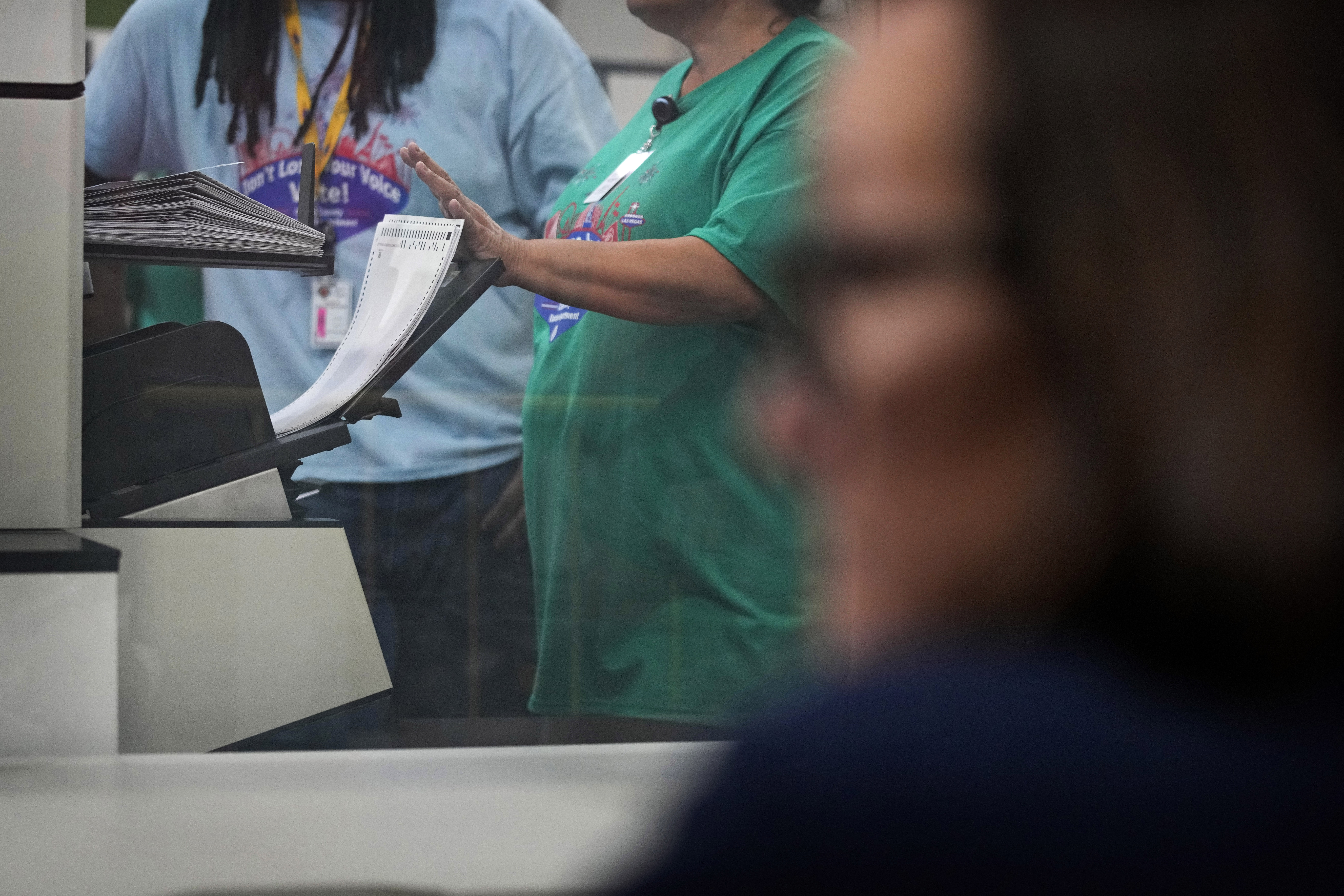How to Dodge the Upcoming Deluge of Election Day Misinformation
On Election Day, Americans are expected to face an overwhelming surge of rumors and conspiracy theories. Here are some strategies to help protect against it.

In recent weeks, U.S. voters have faced a relentless tide of hoaxes, half-truths, and outright lies. Many of these are crafted by U.S. adversaries and subsequently amplified on engagement-driven social media platforms like X.
Historical election cycles suggest that this wave of falsehoods is set to grow on and after Tuesday, especially with a highly competitive race that provides an ideal environment for often unfounded rumors to spread online. Foreign entities linked to countries such as China, Iran, and Russia may escalate their disinformation campaigns, viewing this as an opportunity to influence American voters or undermine trust in the democratic process.
Further complicating the landscape is the concern that former President Donald Trump might employ a similar strategy as in 2020, claiming victory prematurely and questioning the legitimacy of the results if he does not win. Unlike four years ago, he will have the support of Elon Musk, a prominent MAGA donor, who could help amplify his messages to potentially hundreds of millions on X.
CISA Director Jen Easterly addressed reporters on Monday, stating, “We are in an election cycle with an unprecedented amount of disinformation, including disinformation being aggressively peddled and amplified by our foreign adversaries at a greater scale than ever before.”
To help voters navigate the anticipated storm of disinformation, here is PMG's guide.
**Elections aren’t easy to hack**
Over the years, state-backed cyber operatives, cybercriminals, and hacktivists have claimed to "hack" various components of the U.S. election system. Fortunately, their claims often exceed their actual capabilities.
The voting machines in use on Election Day are not connected to the internet, and nearly all have some form of paper backup. This results in three key realities: hacking voting machines is challenging, flipping enough votes to alter an election is even harder, and executing such actions without getting caught is nearly impossible.
Consequently, foreign hackers have pivoted their strategies, as noted by the U.S. intelligence community, to exaggerate the significance of relatively minor attacks to undermine American confidence in democracy.
While overwhelming county websites with traffic or leaking non-public voter data can create challenges for election officials, such tactics won't destabilize U.S. democracy.
“It would not be possible for a bad actor to tamper with or manipulate our voting system in such a way that it would have a material effect on the outcome of the presidential election, certainly not without being detected,” Easterly stated during a call with reporters.
**Minor errors are common. Conspiracies aren’t.**
It's not unusual for polls to open late, for voter check-in computers to stall, or for some precincts to take longer to report their counts. These issues rarely stem from espionage or sabotage.
“Election officials are people — and people make mistakes,” explained Ben Hovland, a commissioner at the Election Assistance Commission, which supports election administration.
Poll workers may misplace keys or make minor errors in set-up. Occasionally, a county’s power or internet may go out unexpectedly.
“Running an election with nearly a million poll workers is an undertaking like nothing else,” Hovland noted. “Within that there are errors, there are things that pop up.”
While this may seem obvious, minor glitches on Election Day often fuel conspiracy theories, inciting fervent reactions online.
Hovland advises caution: “It may not be nefarious. It may just be part of the challenge of conducting an enormous election all across the country.”
**Be patient with the results**
It’s essential to remember that election night results are unofficial.
While America’s fascination with election night is understandable, a touch of patience can be one of the best remedies for election-related hoaxes.
Democrats and Republicans have different voting preferences, and key jurisdictions have their rules regarding when they can start processing various types of ballots, resulting in potentially misleading early returns. For example, mail-in votes, which tend to favor Democrats, may shift initial counts, as seen in 2020.
Additionally, an extended counting period does not signal a problem. The U.S. election ballots contain numerous races, making counting more complex.
"Accurately counting millions of ballots takes time and it is important to be patient," said the National Association of Secretaries of State and the National Association of State Election Directors in a statement.
The statement also emphasized that close races might require recounts or audits, procedures that are normal and conducted according to state laws.
**Distrust and verify**
Contrary to viral claims, Haitian immigrants did not vote multiple times for Vice President Kamala Harris in Georgia, nor did poll workers in Pennsylvania destroy Trump ballots — both fabrications identified as Kremlin influence operations by U.S. intelligence.
With the possibility of more disinformation on the horizon, America’s adversaries have reportedly “likely learned lessons” from the post-2020 election turmoil. Senior U.S. intelligence officials have indicated that Russia, China, and Iran may intensify their disinformation efforts leading up to the inauguration.
When in doubt, voters are encouraged to consult local officials. “The bottom line when it comes to mis- and disinformation is that voters need to go to the source, and the source is your local and your state election officials,” urged Marci Andino, the senior director of the Election Infrastructure Information Sharing and Analysis Center.
Moreover, taking breaks from social media during this turbulent period may also be a beneficial approach.
Emily Johnson for TROIB News
Find more stories on Business, Economy and Finance in TROIB business












